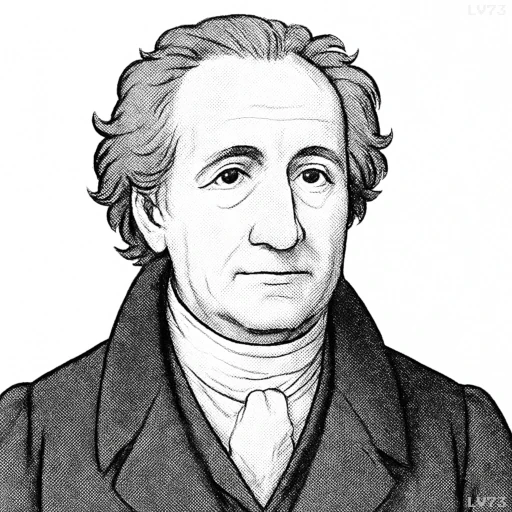“Those who hope for no other life are dead even for this.”

- August 28, 1749 – March 22, 1832
- German
- Poet, playwright, novelist, philosopher, politician
table of contents
Quote
“Those who hope for no other life are dead even for this.”
Explanation
Goethe suggests that a life without hope or aspiration for something beyond the present moment leads to a kind of spiritual death. When individuals fail to envision a future beyond their current circumstances, they lose the vitality and purpose that drive meaningful engagement with life. Hope for something greater—whether in terms of personal growth, future achievements, or spiritual fulfillment—is what keeps the human spirit alive and motivated. Without it, one becomes disconnected from the deeper possibilities of existence, making even the present life seem empty or lacking in meaning.
Historically, this idea reflects the philosophical and spiritual perspectives of Goethe’s time, where thinkers believed in the importance of having a vision for the future, whether in moral growth, intellectual achievement, or spiritual transcendence. Goethe, particularly with his interest in human potential and inner growth, saw hope as an essential part of the human experience that fuels both individual progress and collective harmony.
In modern contexts, this quote remains highly relevant. Many psychologists and philosophers argue that hope is central to mental health and well-being. People who set goals, whether personal or professional, and envision a brighter future often have more resilience and motivation to navigate the difficulties of daily life. For instance, people going through hardships—whether illness, financial struggles, or personal loss—find strength in the belief that their situation can improve or that they can grow through adversity.
Goethe’s words remind us that hope and aspiration are essential for living a meaningful and fulfilled life. Without them, we may become spiritually stagnant, unable to find joy or purpose even in the present. The capacity to dream, aim higher, and believe in the potential for change is what keeps us alive in a deeper, more vibrant sense.
Would you like to share your impressions or related stories about this quote in the comments section?





